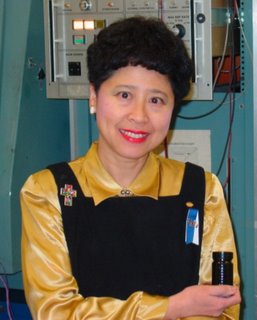
Dr.Deborah D.L. Chung (My material science professor)
Niagara Mohawk Endowed Chair Professor
Department of Mechanical & Aerospace Engineering
University at Buffalo
Self-sensing concrete refers to concrete that can sense its own strain, stress and damage, due to the effects of strain and damage on its electrical resistivity. It is concrete containing discontinuous carbon fiber and is a patented invention of the speaker. Compared to the use of embedded or attached sensors, self-sensing is lower in cost, higher in durability, larger in sensing volume and attractive in the absence of mechanical property loss. The self-sensing of strain or stress in a building allows real-time determination of the occupancy of each room, thereby enabling intruder detection and evacuation monitoring. The self-sensing of strain or stress in roads at the national border allows real-time analysis of the weight of each vehicle as it moves normally, thereby enhancing border security. The self-sensing of underground stress allows earthquake prediction. The self-sensing of damage enhances the safety of dams, bridges and other structures. The applications of self-sensing concrete pertain to homeland security, hazard mitigation, building facility management, energy conservation, traffic monitoring, weighing, and structural vibration control. The science and applications of self-sensing concrete will be covered.
Dr. Chung received her Ph.D. degree in Materials Science from Massachusetts Institute of Technology and her M.S and B.S. degrees from California Institute of Technology, of which she is one of the first four woman graduates. She is Fellow of American Carbon Society and ASM International. She is the first woman in
The presentation will be given on Oct 10 and I hope I can go, learn and document Professor Deborah's findings.




Does she come from China,HK, or Taiwan?
ReplyDeleteBosson
As far as I know, Dr. Chung was born and brought up in Hong Kong and her parents financed her undergraduation in USA after her highschooling in HK.
ReplyDeleteShe received both undergraduation and master's degrees in just 3 years and went into research after that. She was one of the first 4 woman graduates of CalTech (If i'm not wrong) and then she did her phd at MIT.